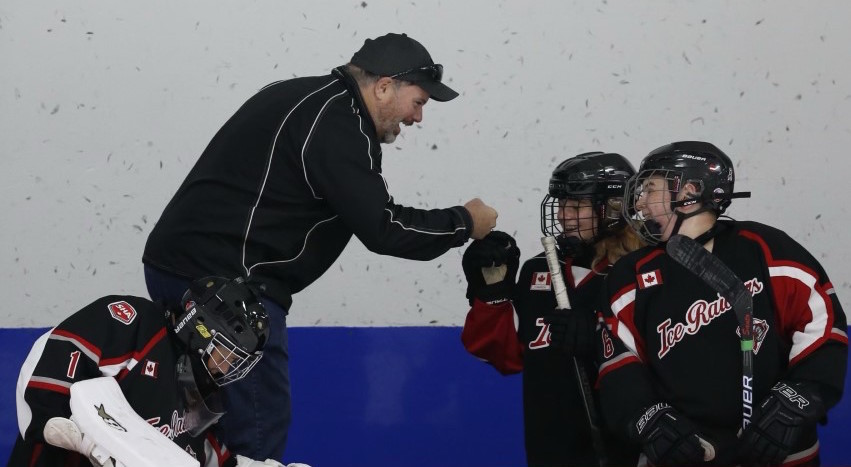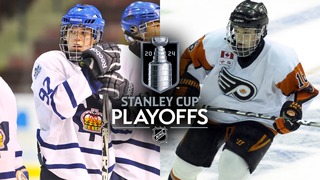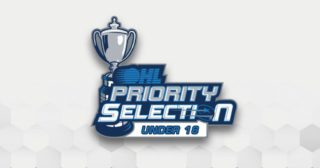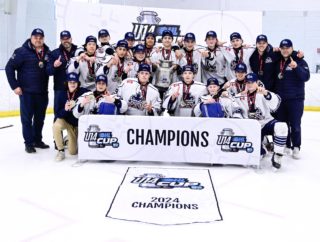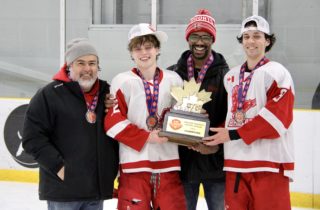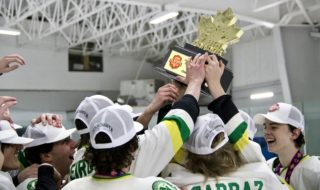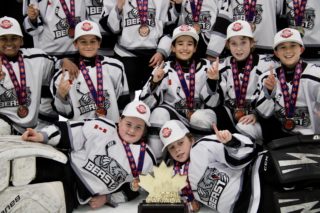By: Logan Lockhart | Sports Journalism Student, Centennial College
There’s one conversation that Greater Toronto Hockey League (GTHL) hockey coaches Craig McCallum and Matthew Coyne experience every year.
After they’ve received an e-mail or a subtle heads-up, they’re tapped on the shoulder by a parent at the rink before a game for a private discussion about whether their son or daughter is good enough to make the jump to rep hockey — and their opinions are valued.
McCallum has coached with the Scarborough Ice Raiders in the GTHL’s house-league level for 16 years, with the objective of making sure his players are learning how to skate faster and stick handle more effectively.
“Coaching isn’t just about developing skills on the ice, it’s about developing people,” he said.
When the Ice Raiders coach has that private conversation about one of his ten-year old players, he tells the parents the most important factor is ice time.
“If you’re playing house league and house-league select programs, you’re getting on the ice a substantial amount of times,” said McCallum. “Are you going to get as many touches (in rep) if we’re talking about a player that needs to work on some fundamentals? Are they seeing the ice in the third period? Would they be better served with more (ice time), maybe in not as competitive hockey?”
In the case of Coyne, who also coaches house league hockey for the Ice Raiders, the deciding factor is if a player has a high on-ice intelligence.
“I look at the smarts and their thinking game,” said Coyne. “I tell my kids that hockey is 90 percent mental and 10 percent physical. If you have the smarts to play, you can go far.”
The conversation starts with an honest assessment of the player’s general skillset, and ends with a determination that answers where the ten-year old would fit best — both as a player and as a human being.
“I would say 99 percent of the time, the parents approach me. They’ll ask my opinion on it, and I’d rather be straightforward and blunt with them,” McCallum stated. “If it’s a kid who I think might not have the skill level — it’s not a knock on them — but I would tell them that they (the player) would probably be better served improving these parts of their game and would have more of an opportunity to do that (in house league).”
Ultimately, it’s the decision of the parent to move the player up a level to rep, not the coaches. Sometimes, that’s exactly what makes the private conversation complicated.
“I think part of the problem is that mom or dad wants it sometimes more than the kid,” said McCallum. “And that pushes kids out of house league and into rep programs long before they should even be thinking about it.”
Coyne’s view on the process is slightly different. He feels proud when his players move up to rep and he quickly turns his attention to facing new and exciting challenges.
“I’m happy when they go up and move on,” said Coyne. “It’s never personal when parents (decide to) move up and leave your team. It also gives you the challenge of coaching new kids.”
Replacing those kids is certainly the biggest challenge for Ice Raiders president Ed Wahl.
“The biggest drain on our house league program is rep teams coming in — and generally the rep teams without house league programs to fallback on — who need to have that team because it’s a financial windfall for them, ” said Wahl. “It’s a drain on house league programs and it’s a shame.”
That’s why in Scarborough, Wahl added, a AAA player is treated exactly the same as a house league player.
“Every child is created equally in my eyes,” said Wahl. “We don’t have a difference in Scarborough.”
Preparing his players for rep hockey has become a responsibility for McCallum, but he’s not allowing it to interfere with his ultimate goal.
There’s four boxes to check off for McCallum when he enters the rink for a new season, and none of them include helping kids move to the next level.
● They’re having a really good time
● They’re learning the game of hockey
● They’re improving as the year goes on
● They’re in a place where they have the potential to create lifelong friends
Achieving those goals is how McCallum defines success — Coyne agrees, but takes it one step further.
“If they can make the (rep) team, I’ve done my job,” said Coyne.
Stay connected with the GTHL on Facebook, Twitter, Instagram, and TikTok.
